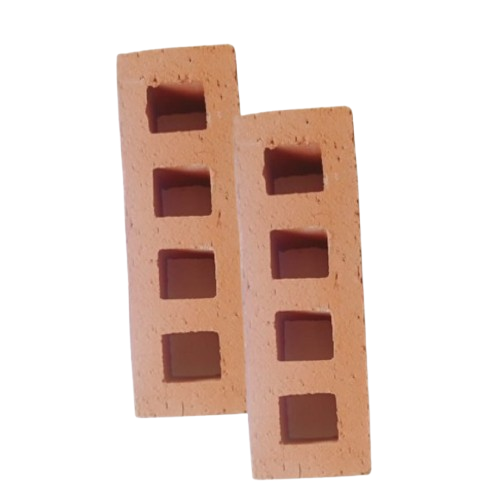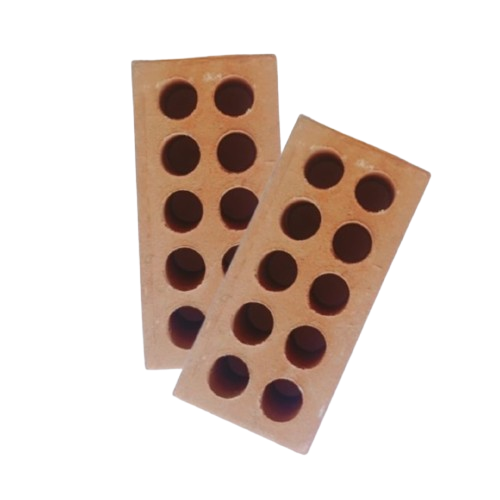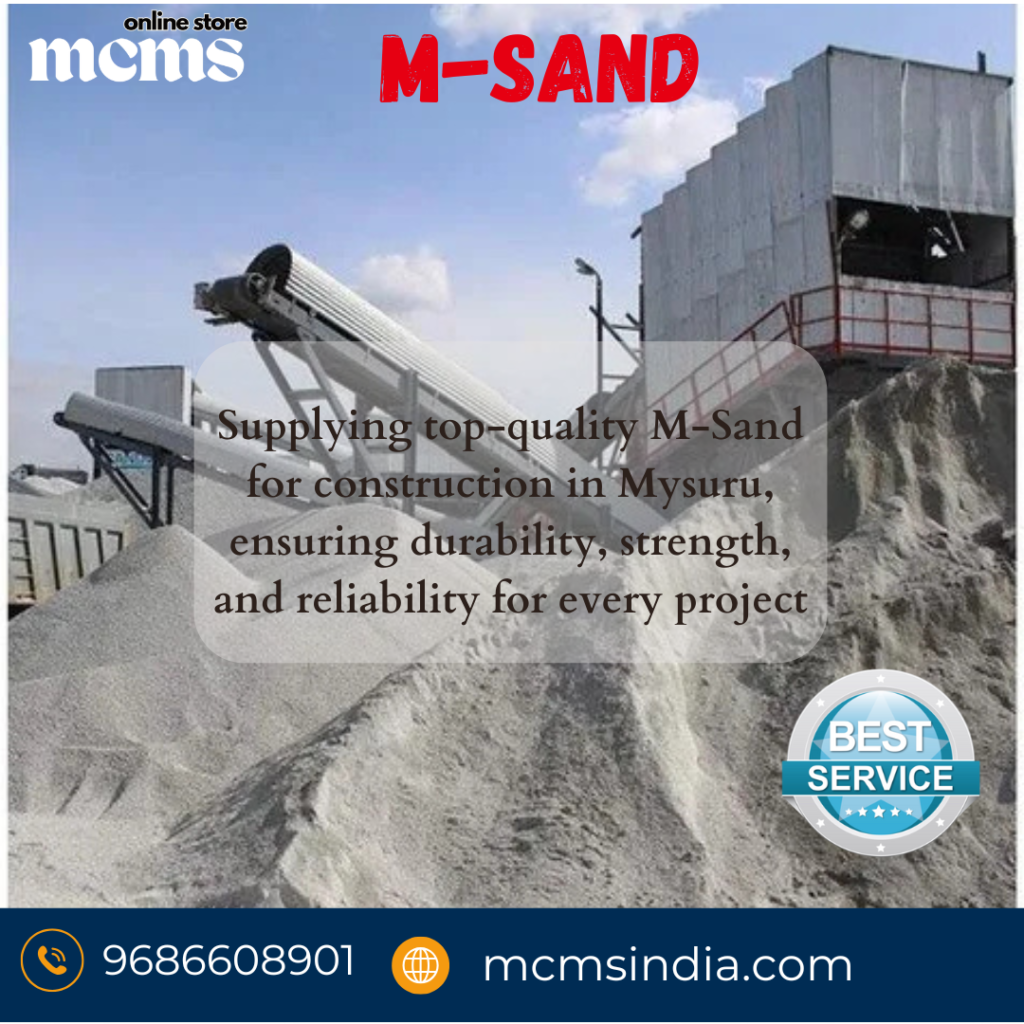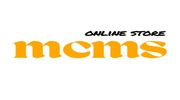Construction material supply McmsIndia
🏗️ Construction Material Supply in Mysore – McmsIndia: Your Trusted Partner from Foundation to Finish
Introduction
Welcome to Construction material supply McmsIndia, Mysore’s premier construction materials supplier. Whether you’re embarking on a residential project or a large-scale commercial venture, we provide a comprehensive range of high-quality materials to meet all your construction needs. From the foundation to the finishing touches, we’ve got you covered
Why Choose McmsIndia for Construction Materials in Mysore?
At McmsIndia, we understand the intricacies of construction projects. Here’s why we’re the preferred choice for many:
- Extensive Product Range: We supply everything from basic materials like bricks and sand to specialized items like AAC blocks and RCC mats.
- Quality Assurance: All our products undergo stringent quality checks to ensure durability and reliability.
- Timely Delivery: We pride ourselves on our prompt delivery services, ensuring your project timelines are met.
- Competitive Pricing: Get the best value for your investment with our cost-effective pricing.
Our Comprehensive Range of Construction Materials
1. Bricks


- Red Bricks: Traditional and durable, ideal for load-bearing walls.
- Made from Natural Clay – Red bricks are primarily composed of clay and shale, molded and fired at high temperatures for strength and durability.
- Traditional Building Material – Used for centuries, red bricks are known for their timeless appearance and architectural heritage.
- Standard Size – Typically available in a size of 190 mm x 90 mm x 90 mm (without mortar), suitable for modular construction.
- High Compressive Strength – Red bricks offer good load-bearing capacity, generally ranging between 3.5 to 10 N/mm², making them ideal for structural walls.
- Excellent Thermal Insulation – These bricks provide natural insulation, helping regulate indoor temperatures and saving energy.
- Eco-Friendly Option – Made from natural materials, red bricks are reusable and biodegradable, supporting sustainable construction.
- Good Sound Insulation – Dense in nature, red bricks offer decent acoustic insulation for peaceful indoor environments.
- Moisture Resistance – When properly fired, red bricks resist moisture absorption, reducing risks of dampness and mold.
- Aesthetic Appeal – Their earthy red tone gives buildings a warm, rustic charm and eliminates the need for additional wall finishes in exposed designs.
- Widely Available & Affordable – Easily available in most regions, red bricks are a cost-effective option for residential and commercial construction.
- Wirecut Bricks: Precision-cut for uniformity and strength.
- Machine-Made Precision – Wirecut bricks are manufactured using advanced extrusion methods and cut with wires, ensuring uniform size, shape, and sharp edges.
- Smooth Finish – These bricks have a sleek, smooth surface, giving a modern and clean look to both internal and external walls.
- Standard Dimensions – Commonly available in sizes like 230 mm x 110 mm x 75 mm, wirecut bricks are consistent and modular for efficient masonry.
- High Strength & Durability – Fired at high temperatures, wirecut bricks offer excellent compressive strength and long-term durability.
- Superior Water Resistance – Their dense structure makes them less porous, reducing water absorption and helping prevent dampness.
- Low Maintenance – The smooth finish and water resistance make them easy to clean and maintain over time.
- Ideal for Exposed Brickwork – Their aesthetic appeal makes them popular for exposed brick designs in contemporary architecture.
- Thermal & Acoustic Benefits – Wirecut bricks provide decent insulation against heat and sound, making interiors comfortable.
- Eco-Friendly Choice – Often made with minimal wastage and using sustainable clay sources, they are a green building material.
- Cost-Effective in Long Run – Though slightly more expensive than traditional bricks, they save on plastering, painting, and maintenance costs.
- Fly Ash Bricks: Eco-friendly and lightweight, offering excellent insulation.
- Eco-Friendly Material – Made from fly ash (a byproduct of coal combustion), sand, cement, and water, fly ash bricks are a sustainable alternative to clay bricks.
- High Strength & Durability – These bricks have high compressive strength and excellent load-bearing capacity, making them suitable for structural use.
- Uniform Size & Shape – Machine-made with precise dimensions, fly ash bricks reduce mortar usage and ensure a neat finish in construction.
- Low Water Absorption – With less than 10% water absorption, they prevent dampness and improve the longevity of buildings.
- Thermal & Sound Insulation – Fly ash bricks provide good insulation, helping maintain indoor temperature and reducing noise pollution.
- Soil Bricks: Cost-effective and sustainable option.
- Made from Natural Soil – Soil bricks are produced using locally available soil, sometimes mixed with stabilizers like lime or cement for added strength.
- Cost-Effective & Eco-Friendly – These bricks are affordable and sustainable, with low energy consumption during production compared to fired bricks.
- Breathable Material – Soil bricks allow natural air exchange, helping maintain indoor humidity and temperature levels for better comfort.
- Suitable for Load-Bearing Walls – When properly stabilized, soil bricks can be strong enough for single or double-storey structures.
- Ideal for Traditional & Green Buildings – Popular in rural and eco-conscious construction, soil bricks offer a rustic appearance and low carbon footprint.
- M-Sand: Manufactured sand, perfect for concrete and plastering.
- Crushed from Granite – M-Sand is produced by crushing hard granite stones, offering a strong and durable alternative to river sand.
- Consistent Quality – It has uniform particle size and shape, ensuring better workability and strength in concrete and plaster.
- Eco-Friendly Option – Reduces the use of river sand, helping preserve natural water resources and the environment.
- No Impurities – Free from silt, clay, and organic matter, making it ideal for high-quality construction.
- Cost-Effective & Readily Available – Easily accessible and affordable, especially in urban areas like Mysuru where river sand is restricted.
- P-Sand: High-quality plastering sand for smooth finishes.
- Finely Graded Sand – P-Sand is finely crushed and graded for smooth plastering applications on walls and ceilings.
- Smooth Finish – Its fine particles ensure an even, crack-free surface with excellent bonding to walls.
- Free from Impurities – Contains no silt, clay, or organic matter, ensuring better adhesion and durability in plaster layers.
- Ready for Use – Pre-washed and ready-to-use for internal and external plastering without additional sieving.
- Eco-Friendly & Cost-Effective – Manufactured from granite and available locally, it’s a sustainable and affordable alternative to river sand.
- Concrete Sand: Coarse sand suitable for concrete mix.
- Medium-Coarse Sand – Concrete sand consists of crushed stone, granite, or gneiss with a coarse texture, ideal for mixing in concrete.
- Strong Binding Properties – Its angular grains ensure excellent bonding with cement and aggregates, enhancing the strength of concrete structures.
- Used in RCC Work – Widely used in ready-mix concrete (RMC), reinforced concrete, flooring, and foundation works.
- Well-Graded Particles – Ensures proper compaction and reduces voids, improving the durability and load-bearing capacity of concrete.
- Meets IS Standards – Quality concrete sand adheres to Indian Standard (IS 383) specifications for fine aggregates in construction.
- Foundation Stone: Essential for a strong base.
- Primary Load-Bearing Material – Foundation stones are used at the base of structures to distribute the building’s load evenly to the ground.
- High Strength & Durability – Typically made from strong, natural stones like granite or basalt, they can withstand heavy loads and harsh weather.
- Irregular or Cut Shapes – Available in both rough (random rubble) and dressed (cut) forms, depending on construction type and aesthetics.
- Moisture & Pest Resistant – Natural stones do not rot or absorb much moisture, protecting the structure from decay and termite attacks.
- Widely Used in Traditional & Modern Construction – Especially common in rural and semi-urban buildings for their affordability and availability.
- Jalli Bricks: Crushed stone used in construction.
- Hollow & Lightweight Design – Jalli bricks have perforations or hollow cores, making them lighter and easier to handle than solid bricks.
- Excellent for Ventilation – The open design allows air and light to pass through, ideal for compound walls, facades, and decorative ventilation.
- Thermal Insulation – The hollow spaces provide better insulation, keeping interiors cooler and reducing energy costs.
- Aesthetic Appeal – Often used in architectural designs for their modern and stylish look, especially in elevation works.
- Eco-Friendly & Cost-Effective – Made with less raw material and lower weight, reducing transportation costs and environmental impact.
- Aggregates: Various sizes for different construction needs.
- Primary Constituents of Concrete – Aggregates are the granular materials like sand, gravel, crushed stone, and crushed concrete used in making concrete and mortar.
- Varied Sizes – Available in fine (sand), medium (gravel), and coarse (crushed stone) forms, aggregates are selected based on the specific requirements of a construction project.
- Strength & Durability – The quality of aggregates directly impacts the strength, workability, and durability of concrete and other building materials.
- Improves Workability – Aggregates help improve the workability and texture of concrete, making it easier to mix, pour, and set in molds or forms.
- Widely Available & Cost-Effective – Easily sourced from quarries, riverbeds, or recycled concrete, aggregates are affordable and abundant for large-scale construction projects.


2. Steel and Mesh
- Binding Wires: For secure reinforcement.
- Used for Tying Reinforcements – Binding wires are primarily used to securely tie steel reinforcement bars (rebar) in concrete structures, ensuring stability and strength.
- Made of High-Quality Steel – Typically made from mild steel, these wires are strong, durable, and resistant to corrosion, ensuring long-lasting performance.
- Variety of Gauges – Available in various gauges (thicknesses), binding wires are chosen based on the size and requirement of the construction project.
- Flexible & Easy to Handle – Binding wires are easy to bend, twist, and cut, providing flexibility for workers during the reinforcement process.
- Cost-Effective & Widely Available – Binding wires are affordable and commonly available in most construction material supply stores, making them a go-to material for reinforcement.
- Steel Mesh: Provides structural integrity.
- Reinforcement for Concrete – Steel mesh is used as reinforcement in concrete floors, walls, and foundations, enhancing the structural strength and preventing cracks.
- High Tensile Strength – Made from high-quality steel, steel mesh provides excellent resistance to tension and bending forces, improving the overall durability of concrete.
- Various Types & Sizes – Available in different types (welded, woven, or galvanized) and sizes, steel mesh is tailored for specific construction needs, including slabs, pavements, and driveways.
- Improves Crack Resistance – The mesh helps to distribute loads evenly, reducing the chances of cracks forming in the concrete over time.
- Cost-Effective & Easy to Install – Steel mesh is easy to handle and install, saving time and labor costs in construction projects.
- Fiber Mesh: Enhances concrete strength.
- Reinforcement for Concrete – Fiber mesh is used to reinforce concrete, helping to control cracking due to shrinkage and improving the overall structural integrity.
- Made from Synthetic Fibers – Typically made from materials like polypropylene, nylon, or polyester, fiber mesh is lightweight and easy to integrate into concrete mixtures.
- Improves Durability – It enhances the durability of concrete by reducing the likelihood of cracks and improving resistance to impact, abrasion, and freeze-thaw cycles.
- Cost-Effective & Easy to Use – Fiber mesh is easy to mix into concrete during the batching process, eliminating the need for traditional reinforcement like rebar or steel mesh in some applications.
- Versatile Applications – Ideal for slabs, pavements, floors, and industrial concrete, fiber mesh is used in both residential and commercial construction for added strength and longevity.
- Chicken Mesh: Used for fencing and reinforcement
3. Cement and Blocks
- Cement: High-quality cement for all construction purposes.
- Essential Binding Material – Cement is a fine powder made from limestone, clay, and other minerals, used to bind other materials like sand, gravel, and aggregate to form concrete.
- Types of Cement – Common types include Ordinary Portland Cement (OPC), Portland Pozzolana Cement (PPC), and Rapid Hardening Cement, each suited for specific construction needs.
- High Strength & Durability – Cement provides the structural strength and durability needed for buildings, roads, bridges, and other infrastructure projects.
- Versatile Applications – Used in a wide range of construction processes, including making concrete, plastering, mortar, and even in the production of concrete blocks.
- Environmental Impact – While essential, cement production is energy-intensive, contributing to carbon emissions. However, newer formulations and technologies focus on reducing environmental impact.
- Cement Blocks: Lightweight and strong, suitable for walls.
- Durable & Strong – Cement blocks are made from a mixture of cement, sand, and aggregates, offering excellent strength and durability for construction.
- Efficient for Load-Bearing Walls – These blocks are ideal for use in load-bearing walls, providing structural support while being less prone to damage than conventional brickwork.
- Variety of Sizes & Types – Available in different sizes and types, such as solid blocks, hollow blocks, and cellular blocks, to meet specific building requirements.
- Cost-Effective & Energy Efficient – Cement blocks are more affordable than traditional brick walls and provide better insulation, helping to reduce energy costs in buildings.
- Fire Resistant – Cement blocks are non-combustible, offering a higher level of fire resistance compared to other construction materials like wood or clay bricks.
- AAC Blocks: Aerated blocks offering thermal insulation.
- Lightweight & Strong – AAC blocks are made from a mixture of sand, lime, water, and a small amount of cement, making them significantly lighter than traditional cement blocks while maintaining strength.
- Excellent Insulation Properties – Known for their thermal and acoustic insulation, AAC blocks help maintain a comfortable indoor temperature and reduce noise, making them ideal for both residential and commercial buildings.
- Eco-Friendly & Sustainable – Made from natural raw materials, AAC blocks are energy-efficient in production, reducing the carbon footprint compared to traditional building materials.
- Easy to Work With – Due to their lightweight nature, AAC blocks are easy to cut, shape, and install, reducing labor costs and construction time.
- Fire, Pest, and Moisture Resistant – AAC blocks are non-combustible, resistant to termites, and offer good protection against moisture, making them suitable for a wide range of construction environments.
- RCC Mats: Reinforced concrete mats for foundation work.
4. Plumbing and Sanitary Materials
- Plumbing Pipes: CPVC, UPVC, and PVC pipes for efficient water supply.
- Variety of Materials – Plumbing pipes come in a range of materials including PVC (Polyvinyl Chloride), CPVC (Chlorinated Polyvinyl Chloride), PEX (Cross-linked Polyethylene), copper, and galvanized steel, each offering distinct advantages for specific applications.
- Used for Water Distribution & Drainage – Plumbing pipes are used for distributing clean water and draining wastewater, with different types suited for hot and cold water supply, sewage systems, and stormwater drainage.
- Durability & Longevity – High-quality plumbing pipes are resistant to corrosion, scaling, and leakage, ensuring long-lasting performance in plumbing systems.
- Easy Installation & Maintenance – Modern plumbing pipes, especially PEX and PVC, are lightweight, flexible, and easy to install, reducing labor costs and maintenance issues.
- Eco-Friendly Options – Pipes like PEX and CPVC are increasingly popular due to their low environmental impact, being recyclable and energy-efficient during production and installation.
- Wash Basins: Variety of designs to suit your needs.
- Variety of Designs & Materials – Wash basins are available in a wide range of materials, including ceramic, glass, stainless steel, stone, and acrylic, each offering different aesthetic and functional qualities.
- Types of Wash Basins – Common types include pedestal basins, countertop basins, under-counter basins, wall-mounted basins, and corner basins, catering to diverse bathroom layouts and space constraints.
- Durability & Ease of Maintenance – Ceramic wash basins are popular due to their durability, stain resistance, and ease of cleaning, while glass and stone basins offer a more luxurious appearance with care instructions.
- Water Efficiency – Modern wash basins are designed with water-saving features, such as efficient faucets and optimized bowl shapes that reduce water wastage.
- Aesthetic Appeal & Functionality – Wash basins are not just practical fixtures but also key elements in bathroom design, enhancing the overall look with sleek and stylish designs that fit different interior themes.
- Western Commodes: Modern and comfortable.
- Comfortable Sitting Design – Western commodes are designed for comfortable sitting, making them more ergonomic compared to traditional Indian-style squat toilets.
- Variety of Styles – Available in different types such as one-piece, two-piece, and wall-hung, offering flexibility to suit various bathroom layouts and design preferences.
- Water Efficiency – Modern western commodes are designed with water-saving features, including dual flush systems, which help conserve water without compromising functionality.
- Durable & Easy to Clean – Made from high-quality materials like ceramic or vitreous china, western commodes are durable, easy to clean, and resistant to stains and odors.
- Wide Range of Designs – From sleek, modern models to more traditional looks, western commodes come in a variety of designs to match different bathroom aesthetics and needs.
- Door Clamps: Essential for door installations.
- Secure Door Installation – Door clamps are used to hold doors firmly in place during installation, ensuring proper alignment and preventing movement during fitting.
- Versatile Applications – They are used in both residential and commercial settings, including for hinged, sliding, and swing doors, providing stability and ease of adjustment.
- Durable & Corrosion-Resistant – Made from materials like stainless steel, brass, or galvanized steel, door clamps are designed to resist corrosion and provide long-lasting performance in various environments.
- Easy to Install & Adjust – Door clamps are easy to install and can be adjusted to ensure a perfect fit, providing flexibility for different door sizes and types.
- Enhanced Safety & Security – By holding doors securely in place, door clamps contribute to the overall safety and security of a building, especially in high-traffic areas or areas requiring additional stability.
- Sump Steps: For easy access to sump tanks.
- Construction Nails: Durable and rust-resistant.
Pricing Overview
| Material | Unit | Price Range (₹) |
|---|---|---|
| Cement | Bag | 320 – 384 |
| M-Sand | Ton | 4300 – 5160 |
| Red Bricks | Each | 10 – 12 |
| AAC Blocks | Each | 40 – 48 |
| RCC Mats | Sq ft | 50 – 70 |
| Plumbing Pipes | Meter | 185 – 428 |
Quality Assurance at McmsIndia
We adhere to the highest standards of quality control, ensuring that all our materials meet industry specifications. Our products are sourced from reputable manufacturers and undergo rigorous testing to guarantee their performance and longevity.
Customer Testimonials
“McmsIndia provided us with top-notch materials for our project. Their timely delivery and quality products made our construction process smooth and efficient.” – Ravi K., Contractor.
“As a first-time builder, I was overwhelmed with choices. The team at McmsIndia guided me through every step, ensuring I had the right materials for my home.” – Priya S., Homeowner
Contact Us
Ready to start your construction journey? Reach out to McmsIndia today!
- Phone: 9686608901
- Email: mcmsindia4@gmail.com
- Address: Opp Chikkamma Niketana Community Hall, Kuvempunagar, Mysore, 570002
Conclusion
Choosing the right materials is crucial for the success of any construction project. With McmsIndia, you can be assured of quality, reliability, and exceptional service. Let us be your trusted partner in building your dreams.
we will make sure that u get a best quality materials to your construction
we will not break your trust at any cost like others do


